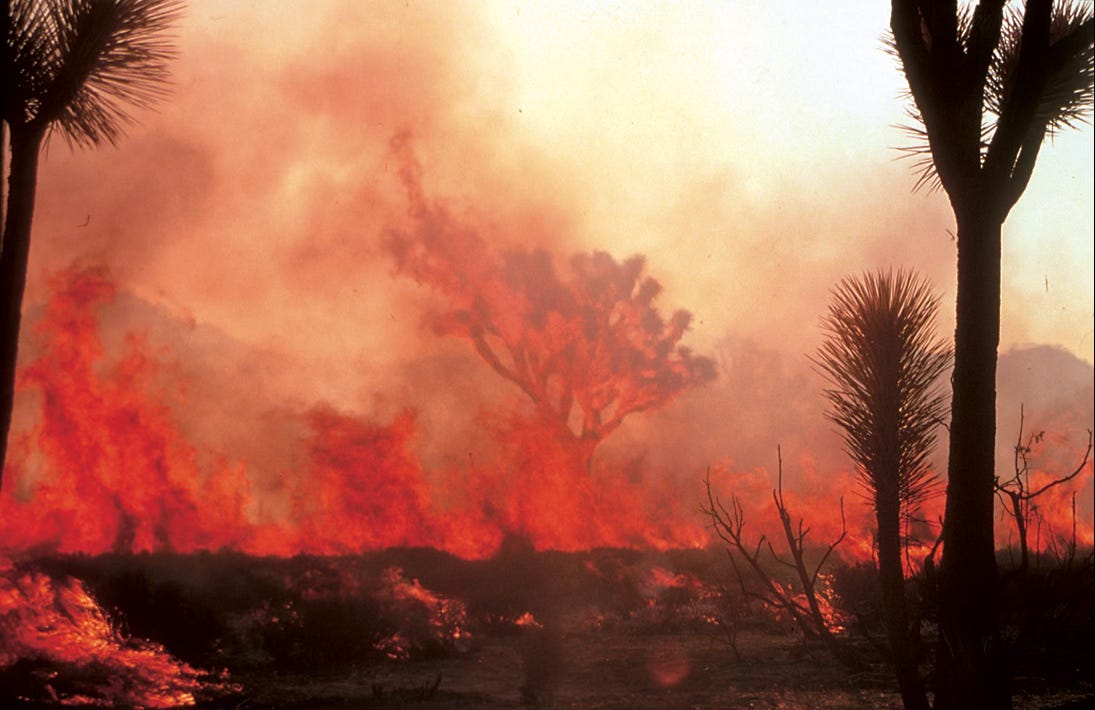BREAKING: California lawmakers introduce climate change Superfund bill to make polluters pay
California would be the first major oil and gas-producing state to pass such a law.
(Editor’s note: Are you a federal employee who works on environmental or energy issues and want to talk about something that’s happening? Landmark has the secure messaging service Signal. Send us a message.)
A new bill introduced in the California legislature would hold oil and gas companies accountable for climate change damages by requiring them to pay into a fund to help with various mitigation and adaptation measures.
The bill, dubbed the Polluters Pay Climate Superfund Act, would make California the first major oil and gas-producing state to adopt such a law, which typically require companies to pay up even if they have not committed wrongdoing.
The bill would only target fossil fuel refiners or producers that are responsible for more than 1 billion tons of greenhouse gas pollution — meaning only the biggest polluters would pay into the fund. The overall total would be determined after the California Environmental Protection Agency conducts a study to calculate climate damages from emissions between 1990 and 2045.
Kassie Siegel, the director of the Center for Biological Diversity’s Climate Law Institute, told Landmark the bill focuses on a “very small number of some of the largest multinational corporations” that have profited “tremendously” from producing oil, gas and coal.
“They're just being asked to pay a portion of those profits to pay for the damage to the state, and they will only have to pay the damage caused by their emissions,” Siegel said. “This is a deliberate, well-supported policy decision to keep things simple. And there is great virtue in simplicity.”
The bill was introduced by state Sen. Caroline Menjivar and state Rep. Dawn Addis, both Democrats, just weeks after devastating wildfires in Los Angeles caused an estimated $250 billion in economic damages, and killed 29 people.
Those fires primarily burned through areas with very high wildfire risk, and, while there appear to be many contributors to the severity of those fires, scientists have determined that climate change made the extreme weather conditions that fed the flames 35% more likely.
Climate change also threatens California because it exacerbates sea level rise, drought, flooding and other concerns.
“At the core of these disasters are the Californians whose lives and property have been destroyed,” Menjivar said in a press release. “Many of whom were already experiencing financial uncertainty due to the rising costs of basic needs; food, housing, utilities, and transportation to work.”
The senator continued: “Profits for polluters skyrocket year over year, and California’s taxpayers simultaneously pinch their pennies for household expenses while also solely footing the bill for catastrophic wildfires and other related disasters.”
The funds from the Superfund bill, should it become law, could be used for various projects, including helping communities harden against wildfire risk, installing solar panels and assisting firefighters in climate change disaster response.
Vermont and New York recently became the first states to pass their own climate Superfund laws, which are modeled after the federal Comprehensive Environmental Response, Compensation and Liability Act (CERCLA). That law holds current and former owners of hazardous waste sites liable for cleanup costs.
Earlier this month, the New York Superfund law was challenged in court by a coalition of 22 Republican attorneys general and industry groups representing coal, oil and gas businesses that said the law is preempted by the federal Clean Air Act and federal common law and violates the U.S. Constitution’s due process provisions, which protects against arbitrary government action.
The states, led by West Virginia, said the New York law would impose a “harsh, retroactive penalty” on “a select few energy producers who lawfully extracted and refined fossil fuels.”
The preemption argument is similar to a defense major oil and gas companies have deployed to try and dismiss dozens of lawsuits filed against them in state courts across the country, with mixed success.
CERCLA, notably, has survived due process challenges in the past.



